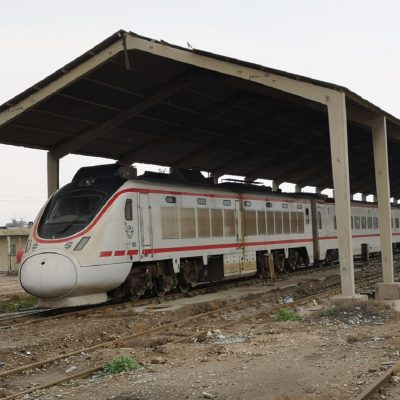Backstage conflict over election of prime minister in Iraq
The political forces and party blocs involved in assigning the Prime Minister entered in closed meetings and conflicts a few days ago, the most recent of which was yesterday’s meeting in the Iraqi capital, Baghdad. To satisfy the Iranian axis, which is counting heavily on the position of Prime Minister in Iraq.
This meeting comes just two days after two extended meetings that included a number of political parties leaders that rejected the presidents’ move, Barham Saleh, to assign Al-Zrafi as Prime Minister after the withdrawal of his predecessor, Muhammad Tawfiq Allawi, and his failure to form a government. These parties are usually described as being close or supported by Iran, most notably the Al-Fateh coalition Led by Hadi al-Amiri, this alliance represents the Popular Mobilization Militias’ political wing, as well as the State of Law coalition led by former Prime Minister Nuri al-Maliki, who is close to Iran, as well as other blocs in the Construction Alliance and armed factions linked to Iran that are closely ideological or serve the Iran’s plans in Iraq.
In this context, two meetings were held at the National Wisdom Movement leaders’ home, Ammar Al-Hakim. The first meeting included most of the components of the Shiite house, with the exception of Muqtada al-Sadr’s’ alliance. As for the second meeting, which was held just one day later, it included those who attended the first meeting in addition to Others.
Sources attending the first meeting said that the assembled people confirmed that they would inform the President, Saleh, of their decision to refuse to assign Al-Zarfi and the necessity to respect and implement the constitution regarding the largest and most numerous bloc in the parliament.
In the third meeting that started yesterday, the leaders and heads of the combined blocs agreed to nominate an alternate for the Zarafi.
Amid these escalating crises and these blocs that refuse to nominate Al-Zarfi and consider it outside the stick of obedience to Tehran’s followers, sources said that approximately 170 deputies reject Zarfi, considering that his mandate is contrary to constitutional and legal contexts.
Those close to al-Zarfi are considered to have a sufficient number of votes and understandings with the blocs in the Iraqi parliament, the most important of which are the Sunni and Kurdish powers, independent of the Shia blocs, and elements of the building alliance wing that includes the Iranian-backed Al-Fateh coalition and who categorically refuse to assign al-Zorfi for several declared reasons, including the method of his assignment, and also for revenge.
Opponents believe that the use of the Zarfi card will pose a danger to the future of the axis of those close to Iran, including the popular crowd and the axis of resistance, which Zorfi said in previous statements that there is no need for armed factions to exist outside the country, and this disturbed many, including the Al-Fateh coalition.
These three meetings, which took place within three days, excluded al sadr support for al-Zarfi, a situation that may complicate the scene further. According to several political sources, the discussions are unanimous on the need to obtain a consensus of the Shiite forces on an alternative to Zarfi so that the same mistakes do not occur. And if the pillars of the Shiite house insist on settling their internal accounts, repeating the same scenario of Muhammad Tawfiq Allawi, the approach is to resort to the majority, that is, to go down when the alliance sees and proceed with its candidate, provided that Sadr agrees and secures his support for this academic personality who currently holds a university presidency.
For his part, strategic expert Ahmed Al-Sharifi said that the dispute is still ongoing and the meetings did not bring new results, the most recent of which was yesterday’s meeting, where new names were proposed and circulated and not agreed upon, which makes the opportunity for the taxpayer to move towards forming the ministry possible and more powerful



